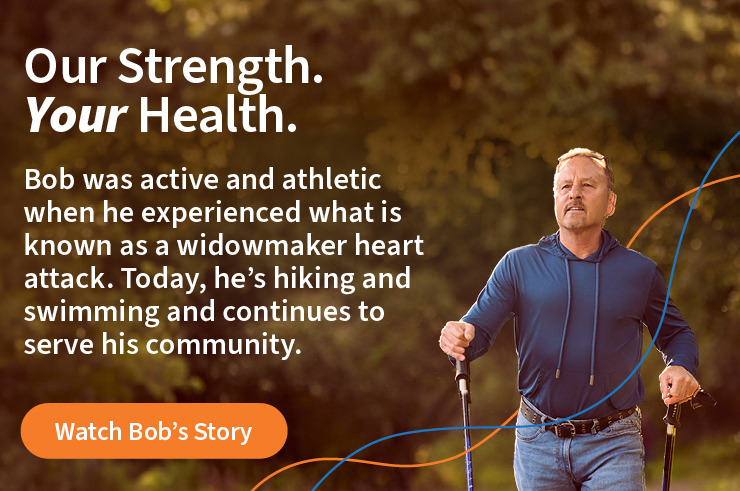Heart Attack
Most often, heart attacks occur as a result of coronary artery disease (CAD), which is caused by a buildup of plaque — a fatty substance — inside your coronary arteries, which supply oxygen-rich blood to your heart.
Eventually, an area of plaque can break open inside an artery, forming a blood clot. If the clot becomes large enough, it can block blood flow through your artery. If the blockage isn't treated quickly, the portion of your heart muscle that's fed by the artery begins to die.
Recognizing the signs of heart attack and getting help fast can save your life and minimize — or even reverse — the damage to your heart.
Know Heart Attack Signs
According to the Centers for Disease Control and Prevention, nearly half of sudden heart-related deaths occur outside a hospital, which suggests that many people don’t recognize the symptoms and get help. Knowing the signs and getting help fast can save your life.
Be aware of the most common symptoms of a heart attack:
- Pain or discomfort in the chest, jaw, neck, arms, shoulders or back.
- Feeling weak, faint or nauseated, sometimes with sudden sweating.
- Shortness of breath.
If you think you're having a heart attack, or someone you know has these symptoms, call 911 immediately — the longer you delay, the more damage to the heart. At the Norma Melchor Heart & Vascular Institute at El Camino Health, our heart team is standing by and ready to provide expert care, 24/7.
Women's Heart Attack Symptoms
Women may experience different symptoms than men during a heart attack. For example, women don’t always have chest pain during a heart attack — it's often more of a pressure or discomfort rather than sudden, severe pain. Because of this, women tend to wait longer to seek medical help. The longer you wait to get medical help, the more damage occurs in your heart.
The most common symptoms for women include:
- Pressure or pain in your chest.
- Pain in your neck, jaw, shoulder, upper back, stomach or arm(s).
- Shortness of breath.
- Rapid heartbeat (fluttering in your chest).
- Nausea or vomiting.
- Sweating.
- Feeling dizzy or lightheaded.
- Unexplained fatigue or weakness.
Prevention
Lowering your risk of coronary artery disease (CAD) can help you prevent a heart attack. The major risk factors for a heart attack that you can control are:
- Smoking.
- High blood pressure.
- High cholesterol.
- Being overweight.
- A diet high in saturated and trans fats, cholesterol and salt.
- Lack of regular exercise.
- High blood sugar due to insulin resistance or poor management of diabetes.
Although there are some risk factors you can’t control such as age — heart attack risk increases for men over 45 and women over 55 — and a family history of heart attacks, you can lower your controllable risk factors by making a few lifestyle changes.
We offer a variety of programs to help you incorporate heart-healthy behaviors into your lifestyle — whether it's our Cardiac Risk Reduction Lecture Series, smoking cessation assistance or other classes and programs, we can help. In addition, we offer a CT Heart Calcium Score screening that will check for a buildup of plaque that can lead to heart disease and heart attack.
Diagnosis and Treatment
The Emergency Department of Mountain View Hospital (El Camino Hospital) works closely with local emergency medical technicians (EMTs) to diagnose your condition even before you arrive at the hospital. When you call 911 with chest pain, EMTs will perform an electrocardiogram (EKG) to record your heart’s electrical activity. If the EKG shows a heart attack, they send the results to our emergency department, and one of our interventional cardiologists — available 24/7 — is notified immediately.
When you arrive at El Camino Health, the heart team prepares you for the cardiac catheterization lab where a heart care specialist will use advanced imaging, called coronary angiography, to find and treat the blockage.

